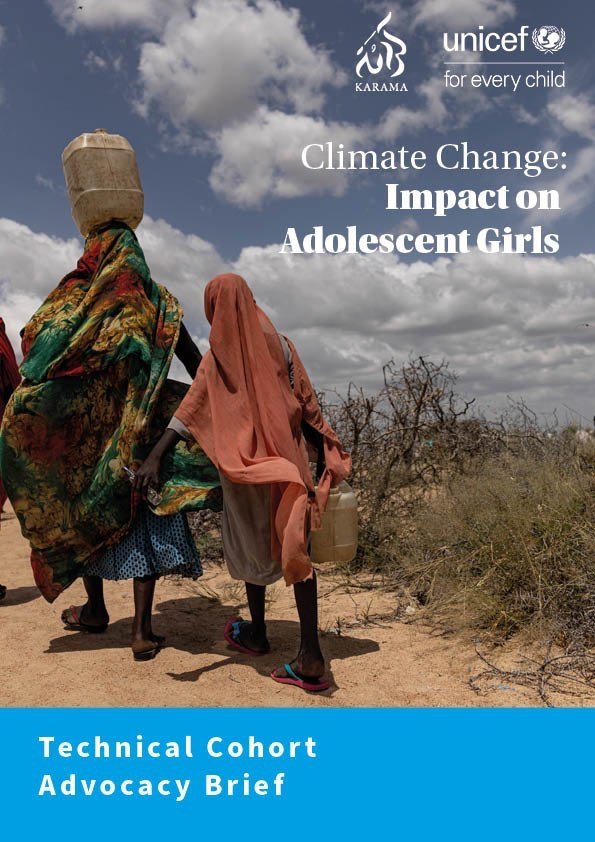Karama & UNICEF launch brief on climate impact on adolescent girls
Climate change is not a gender neutral issue - and adolescent girls are particularly vulnerable. Efforts to mitigate and adapt to climate change need to appreciate the effects on adolescent girls.
To support these efforts, Karama is proud to launch the Climate Change: Impact on Adolescent Girls advocacy brief in collaboration with UNICEF. The brief outlines ways in which climate change threatens the health, wellbeing, livelihoods and future prospects of adolescent girls. It also presents practical means through which these issues need to be addressed, such as:
Protecting girls by adapting the social services they rely on
Preparing girls by improving their capacities and ensuring their voices are heard
Prioritizing girls in climate funding, policies and resource allocation
The brief was developed through the Technical Cohort to Advance Adolescent Girls and Young Women’s Leadership in Climate Change, a collaboration between Karama, UNICEF and the Wa’ed network for adolescent girls. The project has been working to build leadership and advocacy skills and technical knowledge of girls in the region so they are able to advocate for effective response to the climate crisis.
Through a series of trainings and workshops, girls in the Technical Cohort have identified the key climate issues as they see them, and sought to consider and advocate for solutions. The report’s publication coincides with both MENA Climate Week and International Day of the Girl Child.
Welcoming the advocacy brief, Karama CEO Hibaaq Osman said:
“Adolescent girls stand to bear the brunt of climate change, when they have done least to contribute to the problem. As the same time, they are also severely marginalized in the work to deal with the problem. But as the girls of the Technical Cohort show, they are not prepared to stand idly by - they want to demonstrate their skills and their leadership and tackle this issue.
“The Technical Cohort’s advocacy brief underlines just how much passion and ingenuity adolescent girls have. The brief explores not only why adolescent girls are particularly vulnerable to the effects of climate change, but how we must deal with the threats that they face. It is not only a practical document, but a testament to their ability.
“Through the Wa’ed network, Karama has been exploring how we can develop leadership and advocacy, integrating them and their unique perspectives into women’s movements. The climate crisis presents such vast challenges to women and girls, so it has been so important for us to partner with UNICEF through the Technical Cohort. This year, International Day of the Girl Child focuses on rights, leadership, and wellbeing. As this advocacy brief shows, climate change represents such a threat to the rights and wellbeing of girls but also an issue through which girls can develop and exercise their leadership.”

